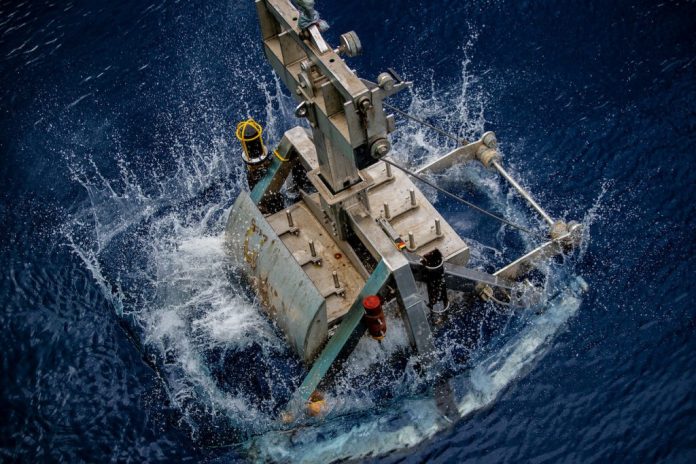Calls for an urgent halt on deep-sea mining reached a historic high as the International Seabed Authority (ISA), the international body that regulates mineral activities on the high seas, met for the final time before a key deadline to pass regulations on mining activities.
The meeting saw a record number of observer organisations attend the event, signaling the growing scrutiny of ISA activities and the potential dangers of mining activities for ocean health, but it ended without any official steps taken to curtail mining efforts.
Discussions are expected to continue between sessions, with the next meeting taking place 10-28 July.
“Such diverse voices from nearly every segment of society calling for a pause on deep-sea mining really gives hope that we can be effective stewards of the deep sea,” said marine biologist Diva Amon.
“But a very select group is pushing through regulations that would greenlight an unrestrained rush to exploit the ocean, despite a critical absence of knowledge and understanding. If we want to prevent enormous biodiversity loss in one of the closest to pristine ecosystems on the planet, we must ensure we keep the Pandora’s box of deep-sea mining closed.”
With the critical two-year deadline to finalise regulations set to expire on 09 July, a growing body of ISA member states is advocating for a precautionary pause or a moratorium on deep-sea mining until the science is clear on its impact, with France calling for an outright ban on mining activities. During the March ISA negotiations, Vanuatu and the Dominican Republic officially added their voices to call for a pause on mining activities. They joined Palau, Fiji, Federated States of Micronesia, New Zealand, Panama, Samoa, Germany, Costa Rica, Chile, Spain, Ecuador and France in supporting a pause, moratorium or ban.
“Vanuatu is deeply concerned about a rush to the deep sea after we have already overconsumed and damaged all other ecosystems on the planet,” said Ralph Regenvanu, Vanuatu’s Minister of Climate Change.
“No mining activities in our deep ocean should be even considered before adequate rules, regulations and procedures are in place, and a regulatory framework based on the precautionary principle and ecosystem-based scientific approaches has been established and agreed upon. Vanuatu’s position on preventing planetary destruction is aligned to our UN Resolution for the International Court of Justice to clarify the obligations of States to ensure the protection of the climate system and other parts of the environment for present and future generations,” Regenvanu said.
Earlier this month, growing concerns were raised by ISA member states over transparency within the body, with both Germany and Costa Rica citing the lack of impartiality of ISA Secretary General Michael Lodge. On 16 March the German government sent a letter to Lodge, outlining concerns that the body’s secretariat was interfering in the decision making process. Costa Rican officials echoed these concerns on social media.
In addition to official ISA observers and member states attending the event, campaigners, Pacific activists and other nonprofits also voiced their concerns. Arriving aboard the Greenpeace ship Arctic Sunrise, Indigenous delegates highlighted a lack of social license for the industry to go ahead, a lack of consideration of the cultural value of the deep sea, and a lack of consideration of Indigenous and traditional knowledge. At the event, 34 Indigenous leaders delivered a petition calling for a ban on deep-sea mining activities with over 1,000 signatories from 34 countries and 56 Indigenous groups.
“We are calling for an immediate ban on deep-sea mining because we need drastic changes in the way we manage our oceans. The threat of deep-sea mining is huge. So, our measures to protect the ocean and the life within it must also be huge. My people have lived in and around the ocean for generations. It’s who we are. We are the ocean and we must act now”, said signatory Solomon Kaho’ohalahala, Hawaiian Indigenous speaker and activist.
Other groups that have called for a stop to deep-sea mining include members of Parliament; Hollywood celebrities; leading electric vehicle and battery manufacturers; banks such as Credit Suisse, Lloyd’s, Standard Chartered, and NatWest; civil society organisations; more than 700 leading ocean scientists; members of the public and more.
The deep-sea mining industry may also be facing increased scrutiny, with one of the industry’s largest players, Lockheed Martin subsidiary UK Seabed Resources, stepping away from the sector.
SOURCE: PACIFIC SCOOP/PACNEWS














